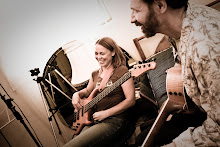
You still hold the get out of jail free card.
You owned the yellow and red properties. And
the trains and utilities.
When the internist in his gray office asked
yesterday, I decided to tell him.
I spoke to the top of his careful head as he wrote
legibly.
I was standing on narrow legs
next to the 7Up bottles resigned to be
carried down to the cold of the cellar creeping up
the polished steps.
They were small, but I was smaller.
Our necks were narrow; their shoulders were dusty
and their caps sharp.
They were not my friends though I was always happy
to see them.
I sourly sliced
my finger. It did not bleed and, then, it did.
You were negotiating and arguing
with your mother about money. I wiped the blood
along the thigh of my trousers.
She said, You’ll have the businesss when I die. Elaine will
have the house.
You pleaded, then shouted, I don’t want to have to wish
for my mother’s death to put two kids through college.
That’s years from now, she said, she smiled. Carelessly,
ceaselessly. Her teeth were stained and
fissured.
It was a Saturday morning, our time together
each week, all of us.
But it was different now since my grandfather’s death; and my stomach
was turning.
I could smell the corned beef in the sunlight of early April
almost noon. I probably protested when you said, Then you won’t
get to see the kids.
I had been born in that house. I knew each big button of the soft yellow
sofa where he had swallowed me in his long arms, these arms,
and the mahogany ribs of each chair waiting at the table
for great aunts and uncles and the flowing
flowing flowers of the unstained
carpet in the large room where I had learned
to walk.
My stomach was turning, but I wanted to stay and eat from
a green glass plate and drink from a cold, clean glass and have
a proper napkin which smelled like Grandma and Aunt Elaine. And leisure.
And Sous le ciel Paris s’envole une chanson, hm mm. . . . The black and silver
iron shining to its point in November, December, January and February.
That first eternity of cold.
And sunlight finally in the grass beneath the buzzing tree in back and dripping
drinks made with lemon wedges and soft sugar.
I must have protested (though never vociferously); perhaps, I cried a little; you
knocked me down the flight of stairs to the back door where the sun was hiding.
It did not warm me where I lay in my sudden puddle.
Nothing warmed me.
It had not warned me. Nothing in the world had warned me.
The silver car, the spindle and boot looked down on me, suddenly bankrupt
and already losing.
Monopoly [#64]
© 2010 Fammerée
* * * * *
Richard Fammerée
fammeree.com
fammeree@att.net
director@universeofpoetry.org
* * * * *
Photograph by Susan Aurinko
* * * * *

















